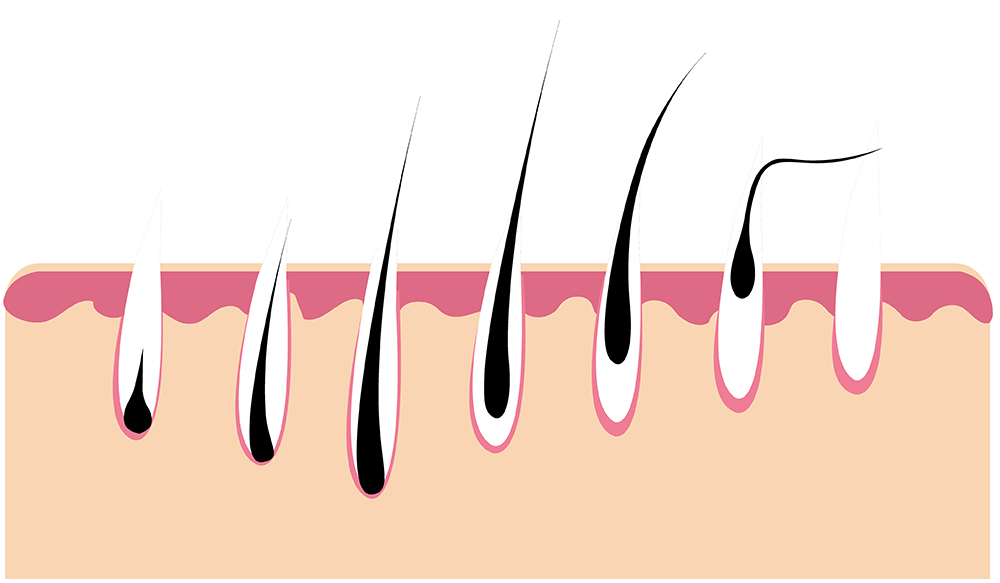
Lab-work for hair loss
The onset of hair loss, and severity can be key elements in the process of diagnosing your hair loss. Sometimes history, and pattern ALONE are all that is needed to make the determination of your hair loss type. Others will require a more in depth evaluation to include lab work to rule out specific conditions that can cause not just hair loss, but other systemic conditions. Sophia Michelle Aesthetics will determine if further evaluation is warranted for your hair loss, which may include blood work. The following labs maybe indicated for your symptoms:
Labs
CBC & Ferritin
Looking for deficiencies in iron. Low iron levels can cause hair loss. If your ferritin is <50, inadequate iron can be the source of your hair loss.
TSH, free T3, free T4, anti-TPO, anti-thyroglobulin, RT3
A dysfunction thyroid can cause havoc on your hair. Levels too high and too low can cause almost the same damage. If this condition is suspected then a complete thyroid panel is recommended.
ANA & RF
Inflammatory conditions can cause hair loss. These two markers demonstrate an autoimmune potential cause. When patients are having fatigue, and other systemic symptoms similar hypothyroid symptoms these markers should also be done.
CRP & ESR
If these are elevated a possibility of an inflammatory condition could be present. These markers are not specific and often times are elevated without an identifiable cause.
Testosterone, free testosterone, dihydrotestosterone (DHT)
Male pattern baldness, is often associated with testosterone levels, and dually for women. Polycystic Ovarian Syndrome is a common source for elevations. Currently we are evaluating the potential for altered PCOS which has an elevation of testosterone in the absence of the actual cysts, plus other conditions associated with the condition. Often patients treated with testosterone can suffer the side effect of hair loss, and other unwanted side effects.
FSH, LH, Estrogen, Progesterone
Imbalances in these hormones will cause hair loss, along with PMS, irregular or heavy periods. Sudden changes in these levels that occur with pregnancy are a big cause of hair thinning post delivery. Often the hair loss is not permanent, and recovers over time, unless an additional pregnancy occurs shortly after. Also, menopause reduces the level of estrogen in the body overtime, and the ratio between testosterone and estrogen become altered. The variation in the ratio can be a key factor in hair loss because testosterone is now becoming more dominant, not necessarily higher.
Sex Hormone Binding Globulin (SHBG)
When SHBG is low, then excessive hormones are elevated. This protein grabs onto excess hormones. Identifying the imbalance of hormones and cause is critical to develop the best treatment plan for every patient.
Cortisol, DHEA-S, 17-hydroxyprogesterone
Cortisol the “stress hormone”, or the “aging hormone”, when out of balance can cause the rate of aging to increase rapidly.
Prolactin
If prolactin is elevated, then androgens rise such as testosterone. When prolactin is elevated, further evaluation needs to be conducted to determine the causes.
CMP
Overall good multi-blood marker test, that checks on how your liver and kidney function, as well as the balance of your electrolytes.
Fasting Insulin, Fasting blood glucose, Hemoglobin A1C
An evaluation for diabetes maybe indicated if associated symptoms are present. Diabetes overtime can reduce blood flow, and follicles need nutrients to stay healthy.
